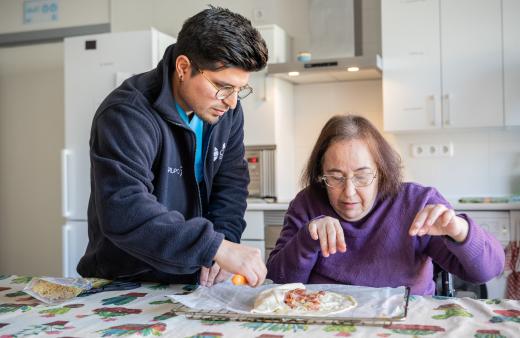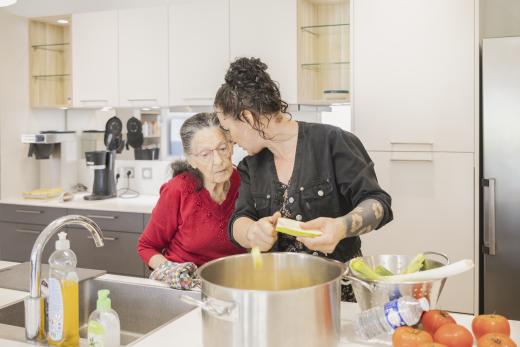ESDW: at Clariane, we’re shaping the future on our plates!

Clariane, a purpose-driven company, is committed to “Taking care of each person’s humanity in times of vulnerability”. Our commitment to bringing this purpose to life exists year-round, but is particularly relevant during European Sustainable Development Week, a time when we encourage every member of the Clariane community to learn and take action at their own level. This year’s event is focused on sustainable food – it’s an opportunity to raise our employees’ awareness of the social and environmental impacts that food has while giving them the keys to a healthy diet that’s accessible to all and respects the environment and producers.
Practical action for responsible food
Sustainable food is a major challenge at Clariane: more than 80 million meals are served every year in our European facilities, including 21 million in France!
Catering is our second-largest source of greenhouse gas emissions after energy. To address this major challenge while ensuring the nutritional quality and delicious taste of the meals we serve to our patients and residents, the Group’s efforts cover the entire chain, from developing menus and selecting suppliers to tackling and recovering food waste.
Take a closer look at our work in France, where we reduced the carbon footprint of our catering by 13% between 2020 and 2024.
Buying local, high-quality food
- 82% of food purchased is of French origin
- 98% of bakery suppliers to facilities are local bakers
- 33% of fruit and vegetables* are grown within 150 km (or 200 km in the Île-de-France region) of the fruit and vegetable depot

Our food practices are committed to protecting health and the climate
Our menus are prepared using unprocessed, seasonal ingredients – both essential criteria because products processed and consumed out of season have a significantly higher footprint.
We also pay particular attention to having a diverse range of protein sources on offer. Plant-based proteins offer a lower carbon footprint, and incorporating them into recipes that align with our patients’ and residents’ nutritional needs and eating habits benefits their health and the environment. Two to three vegetarian dishes are served each week in Inicea clinics.
Our commitment to sorting and preventing waste
Sharing best practices to reduce waste throughout the chain, from managing orders and inventories to serving meals, is essential to make food practices more sustainable. At Clariane France, our efforts have reduced the amount of food wasted by 8% since 2020.
Finally, recovering unavoidable food waste helps limit the impact on resources as part of a circular approach. In 2024, Clariane facilities in France collected over 1,250 tonnes of organic waste, which was transformed into compost and energy.
Acting for the future: food as a tool for sustainability and health
For this year’s European Sustainable Development Week, Clariane is encouraging its teams to become agents of change.
Recipe competitions
Each Group facility has submitted an original recipe based on three themes:
- A plant-based regional recipe: put plants in the spotlight in a recipe from the region’s local culinary heritage
- A no-waste recipe: use frequently wasted ingredients, such as vegetable tops or ripe fruit
- A seasonal fruit recipe: prepare a sweet or savoury dish using seasonal fruit from the facility’s country
Plus two webinars to educate people and make them stakeholders in their own health
- Sustainable food at Clariane, in partnership with Take a waste and Les Alchimistes
From local and seasonal products and diverse protein sources to tackling and recovering food waste, what commitments has the Clariane community made and what action is it taking to encourage diets that protect vulnerable individuals and the environment? What best practices should be adopted to achieve even more?
- Tomorrow’s plates, in partnership with food waste organisation Altrimenti
What we eat has a major impact on our health and the environment. Given the multitude of food labels, how can we make the right choices? What benchmarks should be adopted to gradually create a balanced, responsible and budget-friendly diet?


